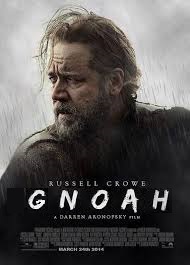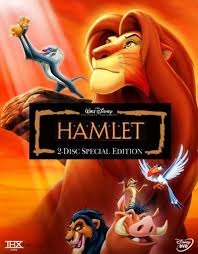Movie Review: Gnoah
 Am I too late to review this film? It had opened six weeks ago where it had a strong debut, and then sharply dropped off. The critics whom I trusted were sharply divided about the film. On one corner, (Nicolosi, Walsh, Nolte and, yeah, Glenn Beck) the film was percieved as an atheistic re-do, an environmentalist agenda’d lib-scribed where God was silent, Noah was a religious fanatic with the intent to murder, and had … wait for it … rock monsters. On another corner (Greydanus, Chattaway, Overstreet and Barron) this film was a visual marvel, a challenging exploration over the themes in Noah often glossed over in our childhood memories, and the liberties taken (i.e. rock monsters) did not detract from the text.
Am I too late to review this film? It had opened six weeks ago where it had a strong debut, and then sharply dropped off. The critics whom I trusted were sharply divided about the film. On one corner, (Nicolosi, Walsh, Nolte and, yeah, Glenn Beck) the film was percieved as an atheistic re-do, an environmentalist agenda’d lib-scribed where God was silent, Noah was a religious fanatic with the intent to murder, and had … wait for it … rock monsters. On another corner (Greydanus, Chattaway, Overstreet and Barron) this film was a visual marvel, a challenging exploration over the themes in Noah often glossed over in our childhood memories, and the liberties taken (i.e. rock monsters) did not detract from the text.
Who to believe? Both sides had points well worth examining.
For reasons far too boring to explain, I finally had my window to catch the movie last night. It might’ve been the best thing for me to read a couple of reviews from both sides of this great divide, and then… chill. Let it rest. Catch it later. I would’ve been disappointed had I seen this via Redbox or Netflix, as there were visuals well worth catching on the big screen.
Now, what I am about to write is my unsolicited advice as to how to bridge the divide between the naysayers and the adherents. From the thumbs-way-down crew and the thumbs-way-up crew. This is historic.
Ready? Here goes.
The one change to the movie, that would have made the movie embraced by everybody, is simply to call the movie “Gnoah.” Or call it “Gnoah: A Tale of the Ark.”
Does it have to be “Gnoah”? I don’t mean to insist this film has Gnostic bearings over it. Another name altogether. Something that can be overdubbed, over the myriad instances, by the principle actors, after a better name is come up by those friendly folks at Bad Lip Reading.
Don’t stop at “Gnoah”, by the way. Get the other names, like “Shem,” “Ham,” and “Japeth” changed over as well. Every proper name overlap between the Biblical text and the original screenplay gets a new name. Pay those “Bad Lip Reading” guys enough to keep running over the next five years.
And then… nothing else.
The biggest problem with the movie is that it is one with great ideas, and a visual marvel, bringing to light some of the most extraordinary sequences in the Scriptures–and yet seems weighed down by the material. Scripture says Noah was a righteous man, but the movie makes it plain that Noah is not. Why burden yourself with this question–which is an interesting one? Say the movie is not Noah at all, but is an imaginative retelling based on the Scriptures.
A couple of weeks ago I had shown my children “The Lion King” for the first time, so it was still fresh in my memory. It was an enormous hit for Disney, and for a time reigned as the biggest animated film of all time. It was one of the iconic achievements of Sir Elton John’s illustrious recording career, and it spawned a Broadway show retelling that is a must-see.
Do you want to know what Jeffrey Katzenberg could’ve done to have completely undermined this project? Simple. Calling this movie “Hamlet.” And renaming all the principle animals (Simba, Scar, Nala, Mufasa etc.) to their Shakesperean equivalents (Hamlet, Claudius, Ophelia, The Ghost).
 How successful do you think that would’ve been? It would’ve been disastrous.
How successful do you think that would’ve been? It would’ve been disastrous.
“Gnoah”, when understood on these terms, is then rendered utterly fantastic. Everybody’s expectations are then properly adjusted. People would be no longer weighing the screenplay as how to how close it relates to the Scriptural source, but rather treat the screenplay as its own creation, and when those story overlaps occur, it would be a welcome surprise.
Does this mean that the movie is not anti-faith? What about the non-mention of God? His silence? The pro-vegetarian agenda? The pro-environmentalist agenda? The portrayal of religious believers as psychopaths? The–gottasayit–rock monsters?
To each of these points.
1. I am perfectly okay with the movie calling God “The Creator.” Because that is what He did. Because this happened some time before the Exodus accounts, where God revealed his name as “I Am” (or Yahweh).
2. How often do we have a movie where a filmmaker wrestles with faith (or lack thereof) on screen? As Christians, we are blessed to have a living faith with God, where we can know when God is speaking to us. But there are times where God is silent, sometimes when we are at our lowest points. Even for someone as holy as Mother Teresa, who found God profoundly silent in the second half of her life, but still was faithful to the end. We can learn from this.
And is it fair to say God is silent in the film? The dreams that Gnoah had come to pass. Extraordinary miracles took place, including the animals’ boarding and the flood itself. The rock monsters were visibly breaking free and flying to the skies. Not to mention a wonderful sequence when creation occurred.
3. I am perfectly okay with central characters expressing their vegetarianism in a story that calls for it. I had no problem with “Finding Nemo”, “Jurassic Park”, or “My Big Fat Greek Wedding” where some of the central characters were vegetarians. Noah’s family’s vegetarianism was not stemmed from some sort of divine finger-pointing, but is a natural extension of the fallout after the Garden. Before the Fall, everybody was a vegetarian. The screenplay was demonstrating how close everybody was to the Fall, but what life was like before the Ten Commandments were unearthed. I can respect these decisions, solely because it shows the filmmaker’s wrestling with the text as is, as if there was no other text that came afterwards (okay, there was one text they referenced afterwards that they had snuck in there, which I will reference at #5).
4. I’m of two sides on the environmentalist agenda in the film. Is it really as pro-environmentalist as they suggest? Yes, there are areas with great barren deserts, but some of this was due to wars, not because of the building of great cities. Furthermore, the trees that miraculously replenished the land–these were then cut down for the ark. I cannot help but think that this would be a very bad pro-environmentalist movie if the trees that replaced the dead landscape were cut down anyway.
But secondly, we are to take care of the earth. It is our home. It’s the only home we have. Do I really need to debate this?
5. The one area where the movie deviates from the script the strongest was in stating outright that Gnoah was not a righteous man, but chosen because he could do the job. And that this Gnoah had in his religious zeal to slaughter his family, once the ark landed, and the animals were freed. This deviation was the most insulting to many religious viewers, because it implied that a faith-filled believer was capable of such a heinous crime.
This is a biggie, and I don’t really want to go deeper here than to reiterate again, how much better it would’ve been if it was called “Gnoah” and detract from the story. A change like this, and the screenwriters are free to go into any direction they chose. But that said…
Scripture is filled to the brim of non-righteous men serving God’s will, capable of doing dastardly things. Abraham was capable of sacrificing his own son. Jonah wanted to do anything else but preach to the Ninevites, lest they repent and become reconciled to God. Peter sliced off the ear of a servant, and in quick order denied Christ when Christ was at His lowest. These stories remind us that fallible people are all capable of God’s salvation. They give hope for us today.
But on top of that, it demonstrated emphatically as to how fragile life really was for mankind. If Noah had–for reasons best described as delusional–slaughtered his family, the human race would have been extinct. The resulting scenes (which naturally lent themselves to his getting drunk near the end of the film), are so wonderfully pro-life that I cannot help but applaud.
6. And lastly… those rock monsters. I liked them a lot. They were really spectacularly awesome. They just weren’t part of the Biblical stories I’ve always had in my mind. Of all the questions that I’d want to wrestle with in a film like this, this is simply the last thing I’d ever want to debate. Don’t believe the Nephilim took the form of rock monsters? I’d wholeheartedly agree with you. Did their presence elevate Gnoah to a better film? Absolutely yes and absolutely not. If I was a filmmaker, and was given an opportunity to add rock monsters to a film, would I have done so? My inner thirteen-year old screams “Oh Yeah!” Even if it were Sophie’s Choice.
In short, had the filmmakers distanced themselves from the original source material, and thus conveyed to audiences that this is an imaginative retelling of the narrative, not a faithful account, but one that keeps much of the spirit of the narrative, I think audiences would have truly embraced it. And truly, after all the misgivings, GNOAH is one remarkable achievement that I wholeheartedly endorse. And I say this, with great sympathy towards those who felt their evenings were wasted and Hollywood can never be redeemed. To those, I would suggest that, as hard as it may be, consider that it may be more faithful than you think. Three-and-a-half stars.








